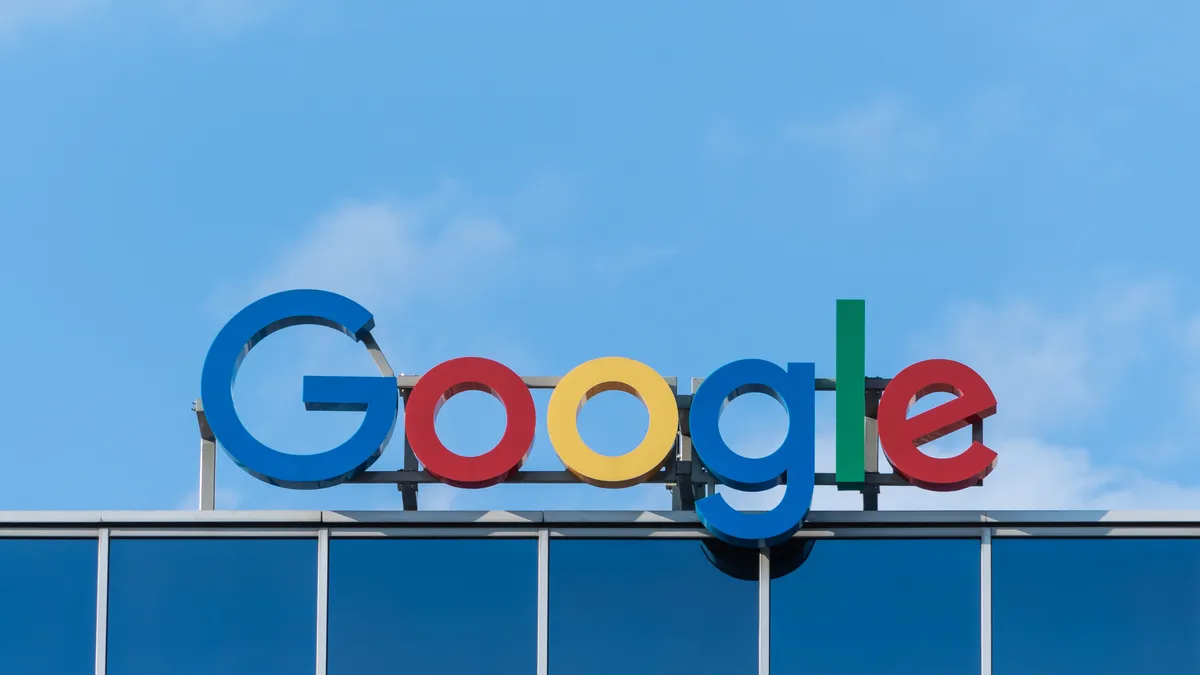Dive Brief:
- A per-person business registration and license tax, or "head tax," took effect on Wednesday in Google's home city of Mountain View, CA. Voters overwhelmingly (71%) approved the tax, Measure P, in 2018.
- The ordinance imposes a progressive tax on all businesses (excluding nonprofits, veterans who are sole proprietors and small businesses that make less than $5,000 a year in revenue). Businesses will pay a flat fee plus an additional $5 to $150 for each employee, with the largest companies paying the most. For example, the largest companies (more than 5,000 employees) will pay a maximum $584,000 flat fee plus $150 per employee.
- The tax revenue will be designated to general services and infrastructure to reduce traffic congestion, improve bicycle- and pedestrian-friendly routes and provide affordable housing and homeless services. The city says the funding will go toward efforts "that would offset the impact on our community by the large number of employees commuting to our City daily."
Dive Insight:
Google has approximately 23,000 employees in Mountain View and is expected to account for more than half — nearly $3.5 million — of the $6 million the city estimates the tax will generate annually.
Prior to the head tax taking effect, businesses paid a $30 flat fee for a license, which generated about $250,000 per year, according to the city. The fee hasn't changed in decades and reportedly should now be $275 per eligible business if the cost had risen steadily with inflation.
Mountain View leaders have not tried to hide the fact that this tax targets the big corporations — especially tech companies — with headquarters or enormous campuses within the Silicon Valley city. Google is the largest, but LinkedIn, Microsoft, Samsung, Symantec and 23andMe are among numerous others. Leaders say such corporations have put stress on the community because of the struggle to provide adequate infrastructure, housing and services for the thousands of workers employed at the big businesses.
Pro-business organizations have decried the tax as a job killer, saying it will prompt companies to move out of the city or at least shift large numbers of employees to other locations. Concerns also have been raised about how the city will spend the money. Because the collected tax funds are allotted for general capital improvement projects and not earmarked for specific projects, some worry that the city could spend them on other efforts that wouldn't benefit the business community as promised.
Head taxes typically are controversial, as is the case in Mountain View. But surrounding cities including Palo Alto, Redwood City, San Jose and Santa Clara still are considering similar measures. Cupertino, CA, where Apple is headquartered, pursued a head tax in 2018 but ultimately put it on hold; the city is expected to look into the idea again this year.
Cities outside of California also have investigated this type of corporate tax to mixed results. Leaders in Seattle, Amazon's home base, passed a head tax in 2018, but it was repealed about a month later because of heavy opposition from businesses and the public.
Google also has a large presence in nearby San Jose. Analysts suggest that Google's investments in San Jose and Mountain View spurred tech- and investor-led development booms in both cities that otherwise would not have occurred at such a scale.
Although housing developments are considered part of the boom, the housing capacity throughout Silicon Valley has not kept up with the spike in demand prompted by large companies. Cities therefore increasingly blame these corporations for exacerbating the affordable housing crisis and rise in homelessness.
Some local governments have resorted to head taxes or other initiatives to get corporations to pay for what's viewed as their fare share of the impact they have on the community. But large companies increasingly are pre-emptively contributing money or resources to improve the cities in which they operate. For example, Amazon will share about half of its new Seattle office building's space with a homeless shelter that's slated to open early this year. Apple, Facebook and Microsoft are some of the other tech giants that contributed money toward expanding affordable housing and homeless services.











